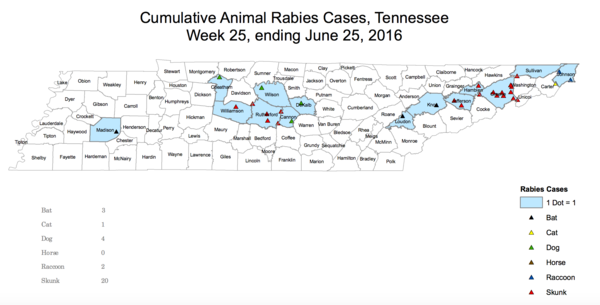
For years, Nashville pet owners have likely been over-vaccinating against rabies. Now a move to clarify the city’s rules could save time and money for roughly 100,000 pet owners in Davidson County.
The change
up for consideration this week by the Metro Council follows the crusade of one man: 79-year-old Karl Meyer, a semi-retired North Nashville carpenter and self-described “activist for the public good.”
He also looks out for his pudgy little black dog, Naja, a lab-terrier he adopted.
“She’s a very sweet dog, but she hates to be vaccinated,” Meyer said. “When you take her to the clinic, she really resists … she hangs back on the leash. I have to sort of drag her into the clinic.”
The annual vet visits were more than just inconvenient.
Meyer learned that rabies vaccinations are only necessary every three years, according to veterinary experts and Tennessee law. But that wasn’t what he was hearing at the clinic.

“[Metro was] sending out notices every year with the water bill … and the vet at the clinic told me that I had to vaccinate every year,” Meyer said. “I had to tell them what the law was.”
The problem was that Metro requires its pet licenses ($6 per pet) to be renewed annually. And to get one, pet owners have to be up to date on the rabies vaccine. So in practice, Metro Animal Control’s low-cost clinics, and local veterinarians, have been giving the shots every year.
“There’s always been a disconnect between the duration of the vaccine and the licensure,” said Tom Sharp, policy director for the Metro Health Department.
Sharp said that, technically, the license and the vaccination have been separate all along, but they’d become conflated, or, “thought of in the same breath.”
While annual vaccinations aren’t harmful, Meyer said the mantra has been misleading — while opening him and others up to additional charges from veterinarians.
“The clinic put a lot of pressure on me for a lot of extra charges, including an office visit charge — and that made me look into it,” he said.
Eventually, Meyer made several public records requests to understand the functioning of Metro Animal Control and made his case that Nashville should bring its licensing into line with the state’s three-year timeframe.
“The Nashville taxpayer and dog pet owner has believed for many years that the annual vaccination was required by law, and you know that (state laws) can exist and if people don’t know about them, they don’t do them much good,” he said.
If the council approves the three-year license, Meyer looks forward to saving time.
And for him, here’s the kicker: rabies among cats and dogs is practically eradicated. It has
been years since a case in Davidson County (there have been six statewide in the past 18 months).

The health department could begin offering three-year licenses in 2017, Sharp said.
And in the long-term, the department wants to create an electronic system that can quickly confirm when vaccines are current, “instead of making sure everyone brings their paperwork, which is always going to be a little bit of a hit-or-miss proposition.”


